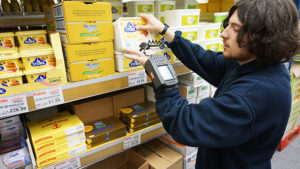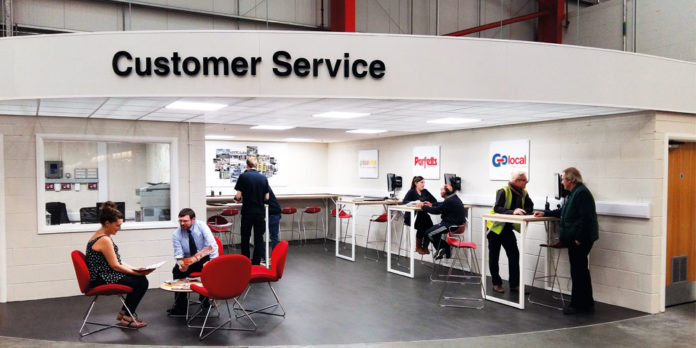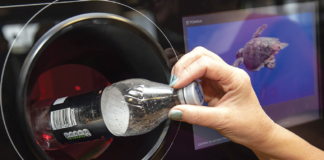A focus on centralised buying, competitive pricing and in-depot theatre has helped wholesaler Parfetts future-proof its operations.
Steve Jobs was one of the great innovators of the past 50 years. Some of the Apple genius’ inspiration has rubbed off on AG Parfett, based in the north of England, which has been focused on innovation and growth in recent years. The employee-owned wholesaler already had a successful cash & carry operation housed in six depots, but it has recently expanded its delivery, online ordering and logistics capabilities. A restructure has also enabled each depot to focus on customer service.
Delivering success
To achieve this, Parfetts created a virtual cash & carry called Gold (Go Local Direct), which runs from its Sheffield depot.
“We have incredible footfall in our cash & carries and over Christmas, we achieved 12% year-on-year growth,” says head of customer development and marketing, Guy Swindell. “However, delivery was an area we needed to concentrate on.”
To meet the challenge, the Sheffield branch became a daytime cash & carry until 8.30pm, and a picking and distribution centre at night. “We targeted new areas, like Hull and Grimsby, that were too far away for people to travel to the depot,” Swindell adds.
Competitive pricing
Starting a new logistics operation naturally put pressure on Parfetts’ costs, but the company has sought to keep pricing competitive throughout. “We still wanted to be the cheapest in the market when it comes to pricing, so we needed enough customers through Gold to make that stack up,” explains Swindell. Gold now has more than 200 regular customers, and achieved sales of £300k per week over Christmas.
Centralised buying
When Parfetts realised that its customers’ needs were changing, it changed, too. Previously, each depot had a local buying team, but using its Go Local retail club promotions, customers who bought in-depot did not need to negotiate deals with buyers as much.
In response, the company moved to centralised buying last year. “We still had the same structure in place from when we started in the early 1980s,” explains Swindell, adding that suppliers now negotiate with traders at head office. “It made sense to centralise. Decisions are made quicker and negotiations are slicker. With the retail club making up 60% of our business, it was the right time.”
Customer service
With a company restructure, Parfetts housed a general manager and two supply chain staff in each depot to focus on maintaining high standards. Swindell says: “Staff are not sat round desks buying any more – they are out on the shop floor asking, ‘Can I help you?’”
To maintain regionality, local buying still exists for tobacco, as well as fresh and frozen products. But staff spend the rest of the time liaising with customers. Customer service points now exist, whereas before, there were closed offices.
“We were aiming for an Apple-Store environment, with an open front, work benches and approachable staff,” says Swindell. A new initiative called Project Shape also sees HR and operations working with staff to train them in a ‘culture of customer service’ and to acquire a knowledge of the business, which is intended to enable them to advise customers.
In-depot theatre
 Parfetts has invested in all six depots by opening up each space and also creating room for seasonal showcase trade weeks. These are geared around Easter, summer, Halloween and Christmas. “In the trade weeks, we offer big, deep-cut promotions, and we encourage suppliers to come in and show off new products and offer tastings,” explains Swindell.
Parfetts has invested in all six depots by opening up each space and also creating room for seasonal showcase trade weeks. These are geared around Easter, summer, Halloween and Christmas. “In the trade weeks, we offer big, deep-cut promotions, and we encourage suppliers to come in and show off new products and offer tastings,” explains Swindell.
Once the relationship between wholesaler, supplier and customer has been established, customers can then gain face-to-face category advice during the trade weeks or arranged visits. Swindell says: “When customers come in, they are getting a wealth of information and experiences. We know many of our competitors have decided to go down the delivered route. We are welcoming customers in.”











